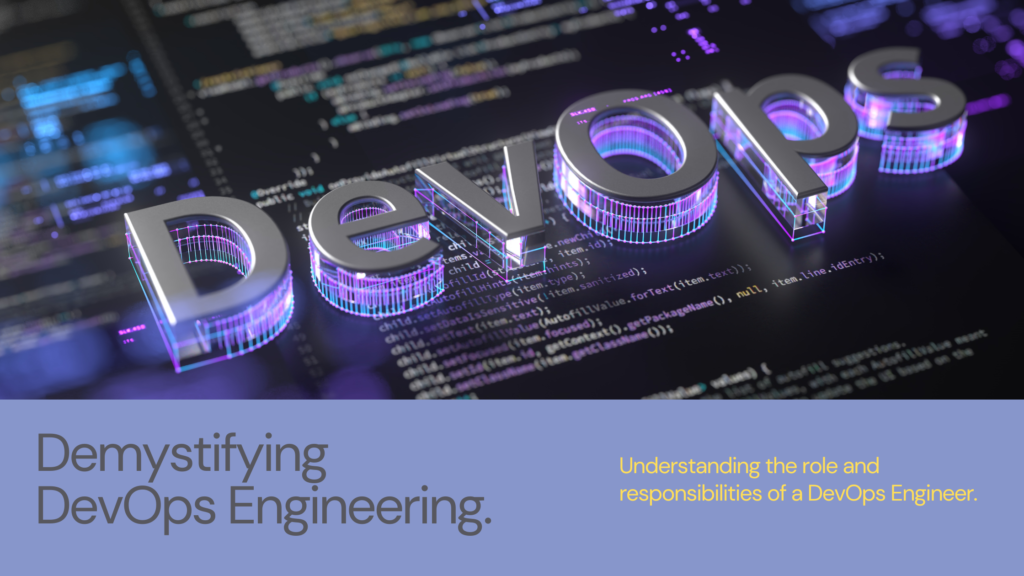Demystifying the Role of a DevOps Engineer

Introduction: In today’s fast-paced software development landscape, the role of a DevOps Engineer has become integral in ensuring seamless collaboration between development and operations teams. This blog aims to delve into the essence of a DevOps Engineer, their job description, key responsibilities, and the essential skill set required to thrive in this evolving field.
What Is a DevOps Engineer?
A DevOps Engineer is a skilled IT professional responsible for streamlining the software development lifecycle by fostering collaboration between software developers and IT operations. They aim to automate and optimize the process of software delivery, ensuring the efficiency, reliability, and scalability of systems.
DevOps Engineer Job Description
The job description of a DevOps Engineer typically revolves around bridging the gap between development and IT operations. They focus on implementing and managing tools and practices that enable automation, continuous integration, and continuous delivery in software development.
DevOps Engineer Job Description: Roles and Responsibilities
- Collaboration Facilitation: Foster collaboration between development, operations, and other stakeholders to ensure smooth workflow and effective communication.
- Infrastructure Automation: Implement and manage automation tools for infrastructure provisioning, configuration, and deployment.
- Continuous Integration and Delivery (CI/CD): Establish CI/CD pipelines to enable automated testing and deployment of code changes.
- Monitoring and Performance Optimization: Implement monitoring tools to track system performance, identify bottlenecks, and optimize system performance.
- Security and Compliance: Ensure security measures are integrated into the development process, maintaining compliance and mitigating risks.
- Scripting and Coding: Proficiency in scripting and coding languages to automate tasks and develop tools for infrastructure management.
Essential Skills for a DevOps Engineer
- Proficiency in Automation Tools: Mastery in tools like Ansible, Puppet, Chef, and Terraform for infrastructure provisioning and management.
- Containerization and Orchestration: Knowledge of containerization tools such as Docker and container orchestration platforms like Kubernetes.
- Scripting and Programming Skills: Proficiency in scripting languages (Python, Shell) and programming languages (Java, JavaScript) for automation and development.
- CI/CD Tools: Familiarity with CI/CD tools like Jenkins, GitLab CI/CD, and Travis CI for continuous integration and delivery.
- Cloud Services: Understanding of cloud platforms such as AWS, Azure, or Google Cloud for cloud-based infrastructure management.
Conclusion
A DevOps Engineer plays a crucial role in enhancing collaboration, automation, and efficiency within the software development lifecycle. Equipped with a diverse skill set spanning automation, coding, and infrastructure management, they are instrumental in driving innovation and continuous improvement in modern software development practices.

Leave a Reply